If you follow the ketogenic diet, there are a variety of beverages beyond plain water that fit within a low-carb plan. Teas, sparkling waters, and certain fruit or vegetable juices can all be compatible with keto.
If you’re eating a low-carb, high-fat ketogenic diet, you may be wondering what drinks you can have other than water.
While water remains the healthiest choice because it has no calories, carbs, or additives, sometimes you want a drink that adds flavor, variety, or replaces a sugary favorite.
You may also be curious about alcoholic choices that still align with keto.
The beverages listed below contain about 0–5 grams of net carbs per serving — net carbs being total carbs minus fiber and sugar alcohols, which better reflects the carbs your body processes.
Here are 13 of the top keto-friendly drinks besides water.
1–3. Warm beverages
Several hot drinks are suitable for keto, but watch what you stir into them. Appropriate additions include half-and-half, heavy cream, unsweetened plant-based creamers, zero-calorie sweeteners, and sugar-free flavored syrups.
Avoid high-carb mix-ins like regular milk, sweetened creamers, table sugar, honey, and traditional flavored syrups.
1. Black or green tea
Tea is a natural choice containing virtually no carbs — generally under 1 gram per cup (240 mL). It’s enjoyable both hot and iced.
Black tea uses oxidized tea leaves, producing a stronger taste, darker hue, and typically more caffeine. Green tea is made from unoxidized leaves, offering a lighter, more floral profile and usually less caffeine.
White tea, crafted from young tea buds, has an even subtler, delicate taste compared with black and green varieties.
Tea is essentially free of calories and rich in polyphenol antioxidants. For instance, green tea contains epigallocatechin gallate (EGCG), a potent antioxidant linked to potential anticancer effects.
2. Coffee
Coffee is another nearly calorie- and carb-free staple suitable for keto. Like tea, it can be served hot or iced.
Caffeine in coffee may slightly raise metabolic rate. Coffee also supplies chlorogenic acid, an antioxidant that may support weight management.
3. Herbal teas
Herbal teas are infusions made from dried flowers, fruits, leaves, or herbs — examples include hibiscus, chamomile, yerba mate, peppermint, and rooibos.
Most herbal teas are low in carbs because only minimal carbohydrate content leaches from the dried botanicals into the water.
However, blends containing dried or candied fruit pieces can have more carbs, so check packaged tea labels before buying.
SummaryTea, coffee, and herbal infusions provide minimal calories and carbs. Use keto-friendly mix-ins to keep carb counts low.
4–5. Carbonated and soft drinks
Many soft drinks are high in sugar or contain artificial sweeteners, but keto-friendly varieties do exist.
4. Alternative diet sodas
Although diet sodas like Diet Coke and Diet Pepsi are technically low-carb, they may not be ideal.
They often contain artificial sweeteners such as sucralose and aspartame, which can negatively affect gut bacteria and intensify sugar cravings — potentially undermining weight goals.
On the other hand, some diet sodas use naturally derived zero-calorie sweeteners like stevia or erythritol (a sugar alcohol from corn), which tend to have fewer downsides than synthetic sweeteners.
Look for keto-friendly sodas such as Zevia and Virgil’s Zero Sugar.
5. Sparkling water
Sparkling water is carbonated naturally from mineral springs or by injecting carbon dioxide during production.
Many flavored sparkling waters have no added sweeteners, making them an excellent low-carb option.
Brands to consider include Perrier, Aura Bora, and Hint.
SummaryDiet sodas and sparkling waters typically contain no net carbs. Prefer drinks sweetened with stevia or other natural zero-calorie sweeteners over those with artificial sweeteners.
6. Juices
Generally, juice is best avoided on keto, but a few choices can work.
Fruit juice
Most fruit juices are high in sugar and aren’t suitable for keto.
Exceptions include lemon and lime juice, which are low in carbs yet add bright flavor. Use them to enhance plain water, tea, or other beverages.
Vegetable juice

Some vegetable juices are low in carbs and can fit into a keto plan. Keep in mind, juicing removes most of the fiber unless you include the pulp.
Low-carb vegetables for juicing include:
- celery
- cucumber
- leafy greens such as kale and spinach
If you don’t own a juicer, some store-bought veggie juices exist, but check labels — many bottled varieties contain added sugar and often provide at least 10 grams of carbs per serving, making them unsuitable for keto.
SummaryMost fruit juices are high in sugar, though lemon and lime can be used for flavor. Certain low-carb vegetables can also be juiced, but watch for loss of fiber and added sugars in bottled products.
7. Flavored waters
Some flavored waters use small amounts of real fruit juice, delivering natural taste and a touch of sweetness while keeping carbs fairly low — typically 1–5 grams of net carbs per serving.
Examples include Spindrift sparkling water and Lemon Perfect flavored water.
You can also add zero-carb liquid or powdered water enhancers to plain water. These come in many flavors; while some contain artificial flavors and sweeteners, others are unsweetened or use stevia.
Look for stevia-sweetened enhancers such as Stur or unsweetened options like True Lemon.
SummarySome keto-friendly drinks contain small amounts of real fruit juice. You can also use water enhancers that are low-carb or sweetened with natural zero-calorie sweeteners.
8. Milk substitutes

Cow’s milk isn’t ideal for keto because it contains natural sugars, but several plant-based milks are keto-compatible.
Keto-friendly non-dairy milks include:
- almond milk
- coconut milk
- macadamia nut milk
- flaxseed milk
These unsweetened varieties work well for drinking, pouring over keto-friendly cereals, and general cooking.
Only unsweetened versions are suitable for keto — many plant milks are flavored or sweetened and thus too high in sugars.
SummaryUnsweetened plant-based milks like almond and coconut milk are keto-appropriate. Avoid flavored and sweetened types because they often contain too much sugar.
9. Energy drinks
Some energy drinks can fit into a keto plan, but many mainstream brands rely on artificial sweeteners. Opt for versions that use natural sweeteners like stevia.
Be aware that energy drinks may pose risks to the brain, heart, and liver, particularly in young people, and rare cases link them to heart failure.
If you choose to drink energy drinks occasionally, monitor their caffeine levels. Typical energy drinks have about 150–200 mg of caffeine per 16-ounce (475-mL) can, compared with a general safe daily limit of about 400 mg for most adults.
Examples of keto-friendly, naturally sweetened energy drinks include EBOOST and Kill Cliff.
SummaryChoose energy drinks sweetened with stevia or other natural zero-calorie sweeteners. Keep total caffeine intake under about 400 mg per day.
10. Sports drinks
Sports drinks such as Gatorade and Powerade provide electrolytes like sodium and potassium to replace what’s lost through sweating.
For those doing intense workouts or exercising in hot conditions, replacing fluids and electrolytes is important to prevent dehydration, cramps, and headaches.
Electrolyte beverages can also help alleviate symptoms of the “keto flu” — fatigue, headaches, and muscle aches that sometimes occur early in the diet.
However, many sports drinks are high in sugar. Low-carb versions like Gatorade Zero and Powerade Zero exist but often use artificial sweeteners.
Alternatives include electrolyte powders sweetened with stevia that you can mix into water.
Search for electrolyte powders such as Ultima Replenisher and LMNT.
SummarySports drinks help restore electrolytes after exercise and may ease keto flu symptoms. Prefer electrolyte powders sweetened with stevia over low-carb sports drinks that contain artificial sweeteners.
11–13. Alcoholic options
Alcohol can interfere with weight-loss efforts on keto, but you might still want to know which alcoholic beverages keep you in ketosis.
Remember that alcoholic drinks contribute calories from alcohol and sometimes from added carbs.
11. Low-carb beer
Regular beer is usually high in carbs due to sugars from grains that aren’t fully fermented.
Low-carb beers are made by using less grain or fermenting longer to convert more sugars to alcohol.
Some of the lowest-carb beers — about 2–3 grams of net carbs per 12-ounce (355-mL) bottle — include Budweiser Select 55, Michelob Ultra, and Miller 64.
12. Hard spirits
Hard liquors like vodka, whiskey, rum, and tequila are naturally carb-free and generally acceptable on keto.
Be cautious with cocktails, as mixers like fruit juice or regular soda add sugar. Also check flavored spirits for added sugars.
To keep drinks low-carb, sip spirits neat or mix with zero-carb options such as diet soda or seltzer. Avoid tonic water because it contains added sugar.
13. Low-carb hard seltzer
Low-carb hard seltzers combine flavored seltzer or sparkling water with added alcohol and are a convenient keto option.
If you avoid gluten, inspect labels closely because some hard seltzers are made from malt liquor.
SummaryLow-carb beers, hard seltzers, and distilled spirits are keto-friendly choices. Watch mixed drinks, since sodas and fruit juices often add carbs.
The bottom line
There are many keto-friendly beverages beyond plain water, and you may already have several at home.
Tea, coffee, and herbal infusions are excellent low-carb choices. Diet sodas, sparkling water, select juices, sports drinks, and energy drinks can also work — just choose low-carb, no-sugar varieties and favor products sweetened with stevia over artificial sweeteners.
For alcoholic options, low-carb beers, hard seltzers, and spirits are available, but mixed drinks often contain hidden sugars.
Overall, you have numerous flavorful drink choices while following a ketogenic diet.



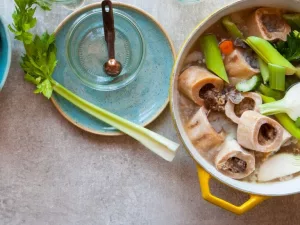
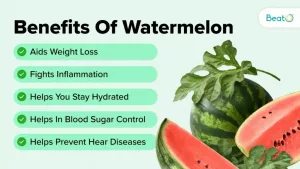
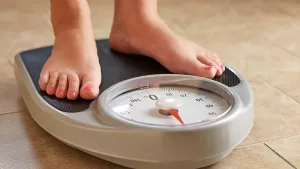
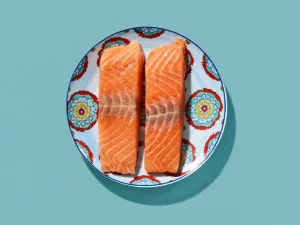
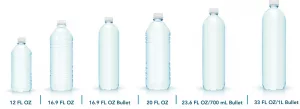
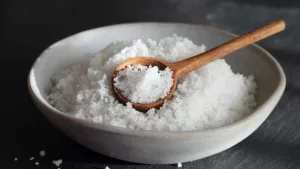
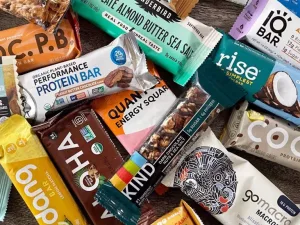

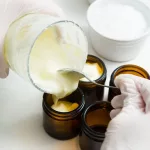













Leave a Reply
You must be logged in to post a comment.